Big-Tech & Bonds Sink As Global Yield Curve Inverts For First Time In Decades
A wave of deflationary impulses overnight from European inflation data combined with headlines suggesting China could be easing its COVID restrictions supported futures overnight but by the time the US cash markets opened, stocks were already leaking lower (not helped by weak housing data).
At around 1057ET, a headline hit that the Chinese city that houses the key iPhone production plant is set to loosen COVID restrictions - which would seem like good news - but instead it sent AAPL reeling and that dragged the entire market lower...
By the close, Small Caps managed gains. The Dow managed to get back to unch with some last minute magic, but Nasdaq the biggest loser...
The S&P traded around CTA momentum triggers:
-
short-term 3879
-
medium-term 3969 (most important)
-
long-term 4064
Fed Chair Powell is due to speak tomorrow - his last public address before the FOMC meeting - which will be followed by Payrolls later in the week, and we suspect some anxiety on positioning is likely to have added to today's fragility.
Source: Bloomberg
Treasury yields ended higher on the day, with the long-end underperforming as AMZN hit the calendar with some major issuance prompting rate-locks to reverse the TSY gains overnight...
Source: Bloomberg
The 10Y yield spiked up from overnight lows to run stops at Friday's yield highs...
Source: Bloomberg
The dollar ended the day lower but followed a similar trajectory top yesterday with overnight weakness reversing into gains during the EU/US session...
Source: Bloomberg
Overnight saw a bid hit Bitcoin, lifting the crypto back above $16,500...
Source: Bloomberg
Oil prices ended the day higher - though faced significant intraday volatility amid China and OPEC headlines...
Gold managed gains on the day, despite closing well off the intraday highs...
Finally, for the firs time since at least 2000 (since Bloomberg's records began), the average yield on global sovereign debt maturing in 10 years or more has fallen below that of securities due in one-to-three years...
“Central bankers paralyzed by inflation fears will keep cash rates anchored in the restrictive zone for longer,” said Prashant Newnaha, a rates strategist at TD Securities Inc. in Singapore.
“This will be a key catalyst for ongoing curve flattening.”
The inversion of the yield curve is typically seen to herald a recession, as investors switch money to longer-term bonds due to pessimism over the economic outlook. Those fears are growing as policy makers around the world pledge further monetary tightening to tame rising consumer prices.
https://ift.tt/WRyG10n
from ZeroHedge News https://ift.tt/WRyG10n
via IFTTT

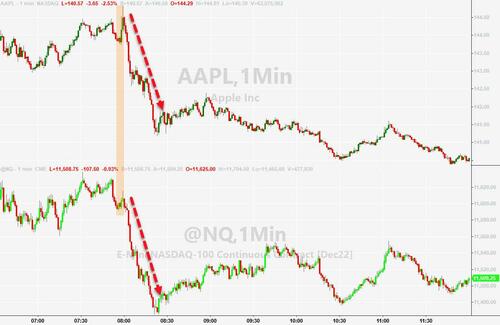
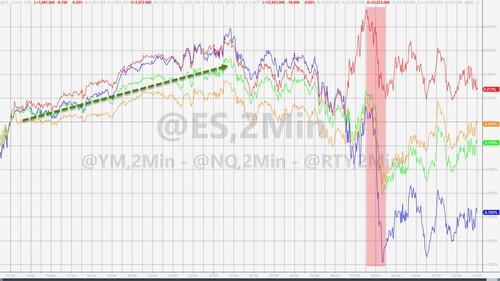
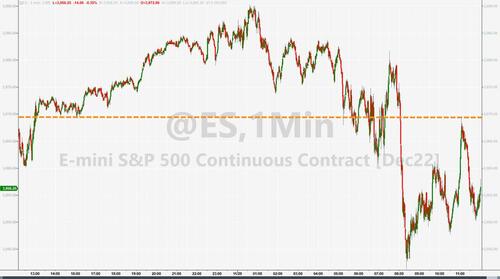
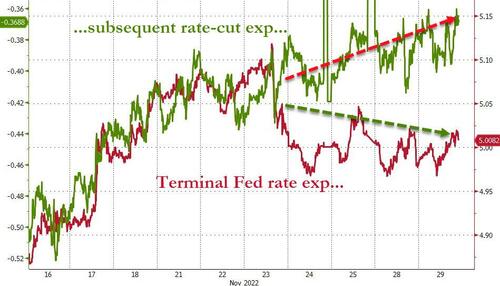
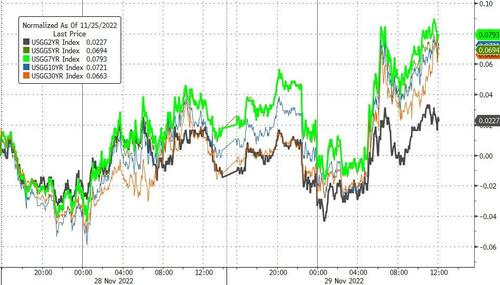
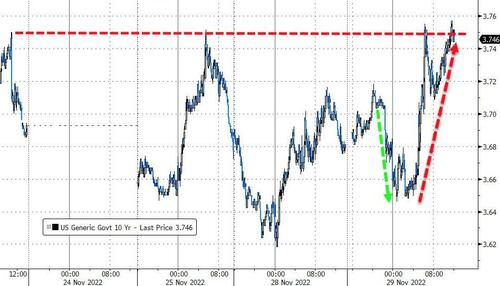
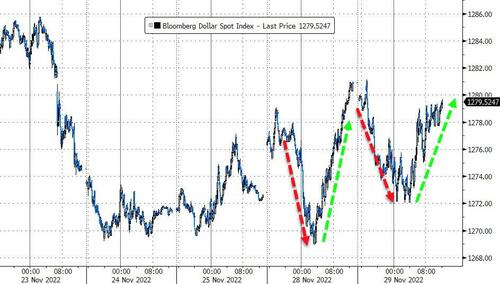
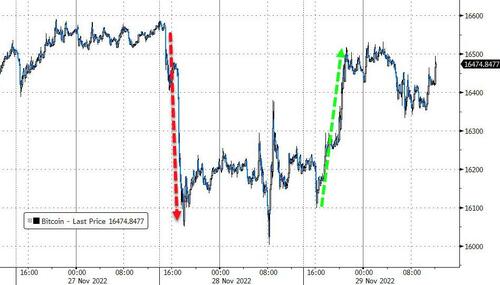
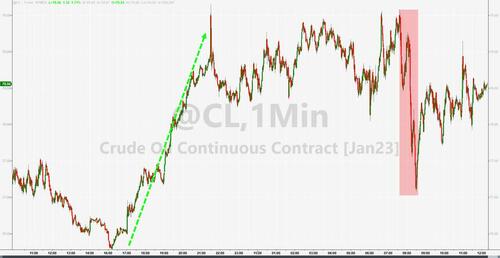
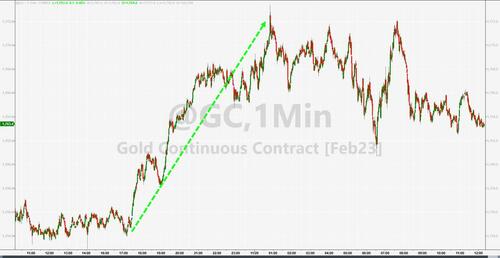
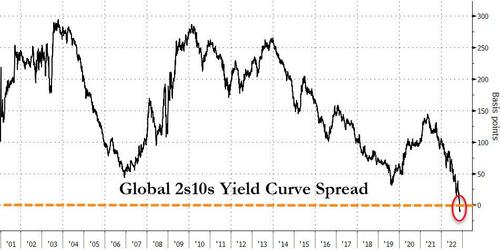
0 comments
Post a Comment